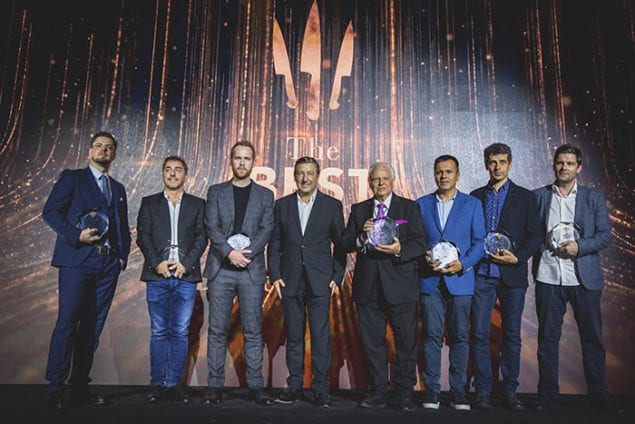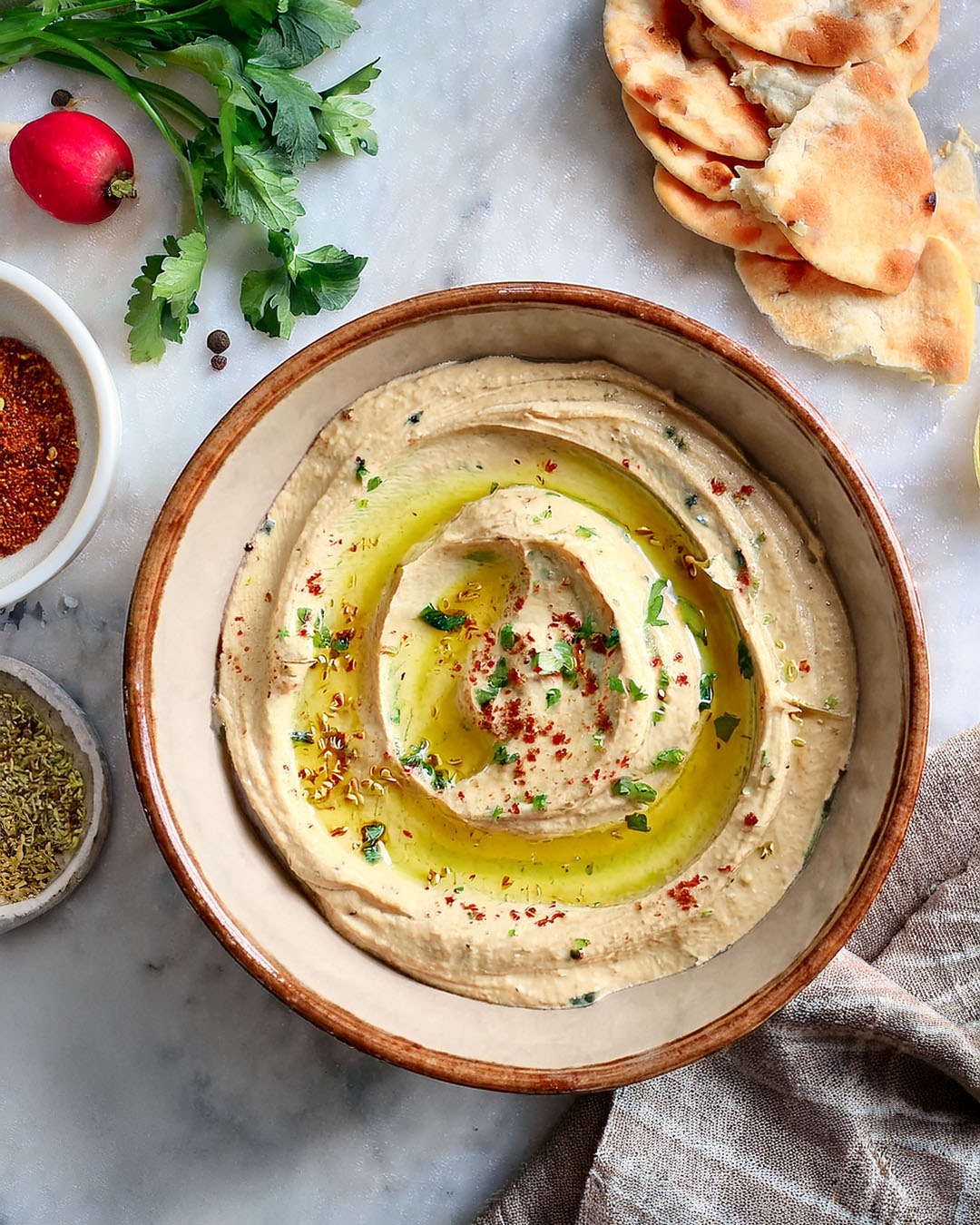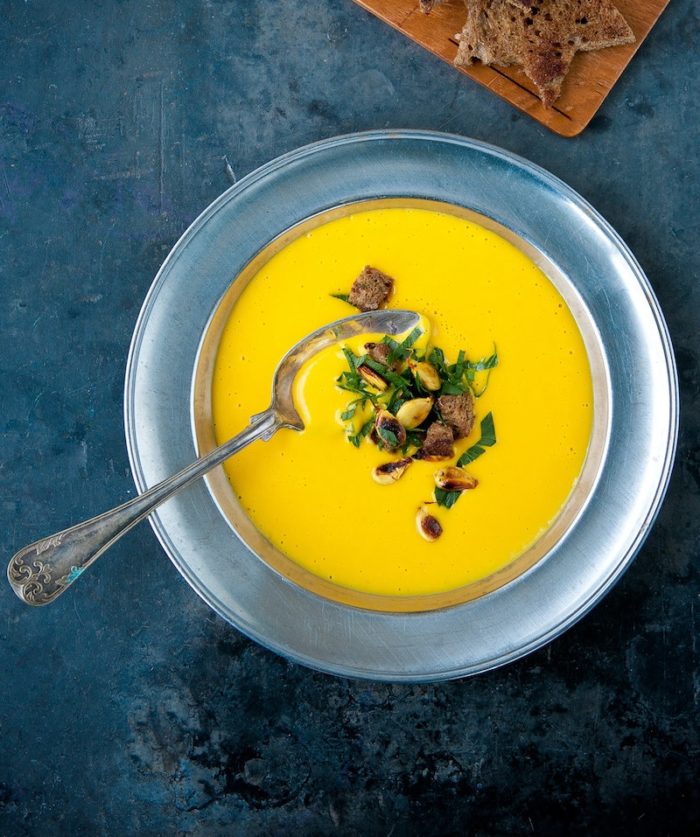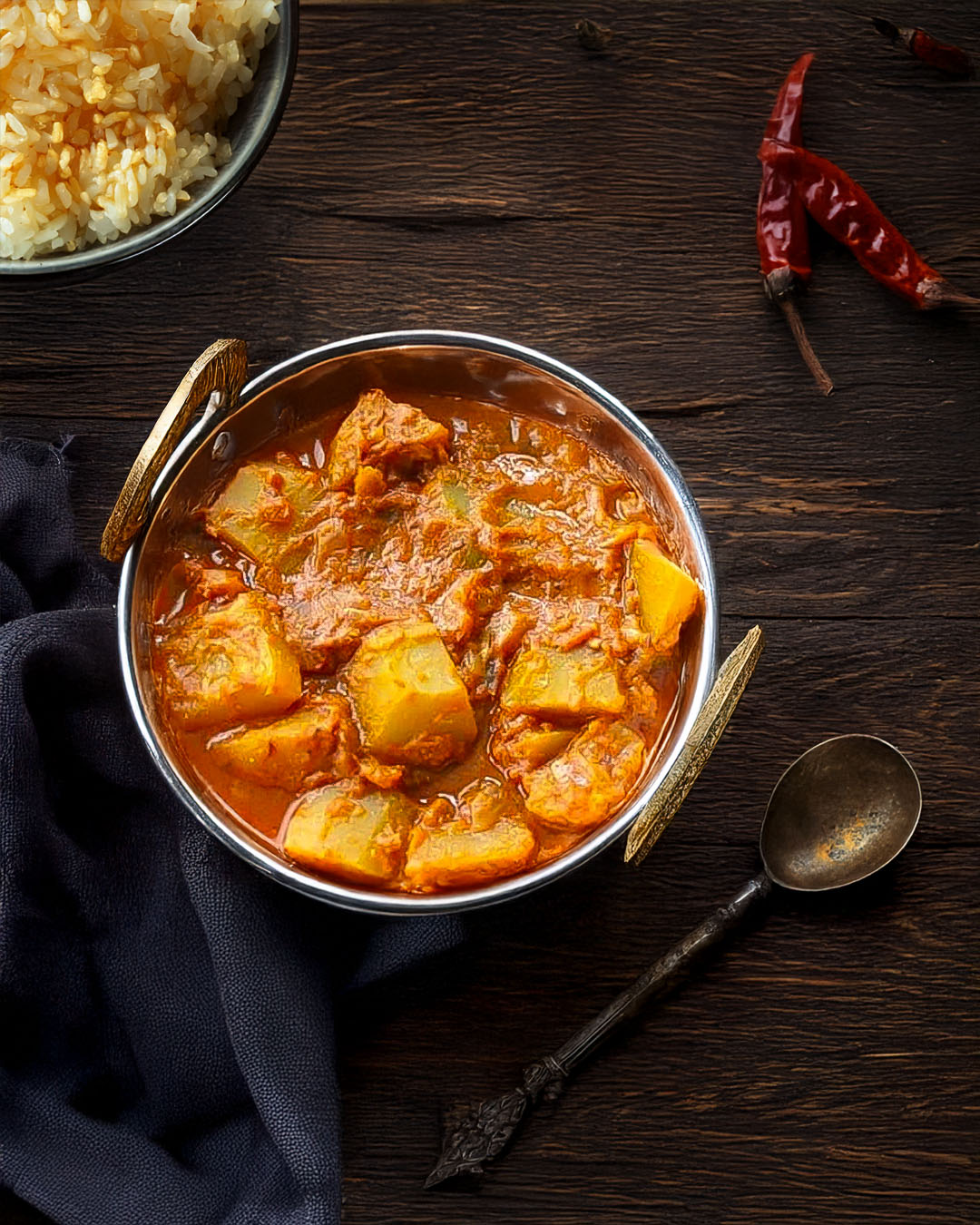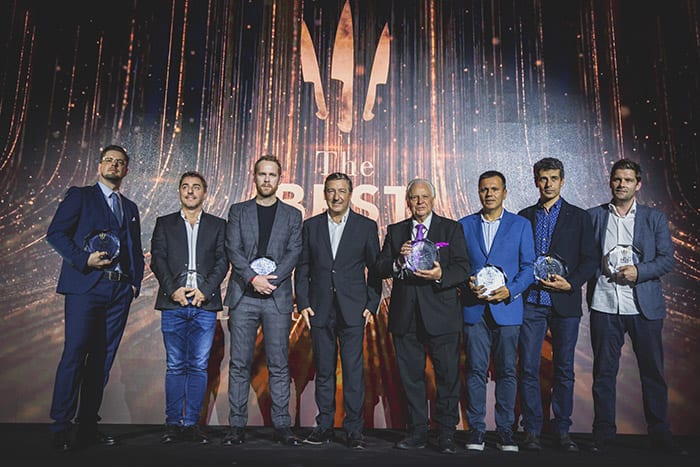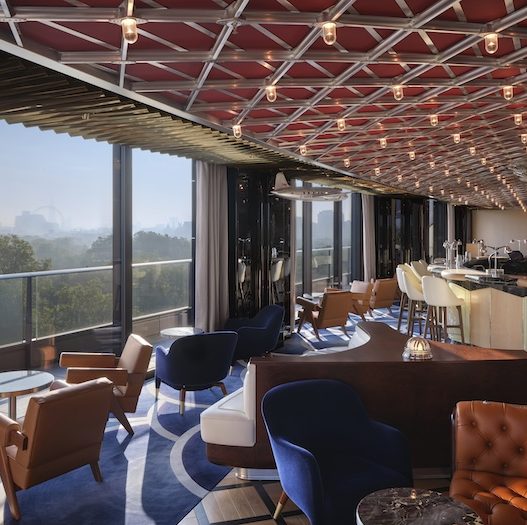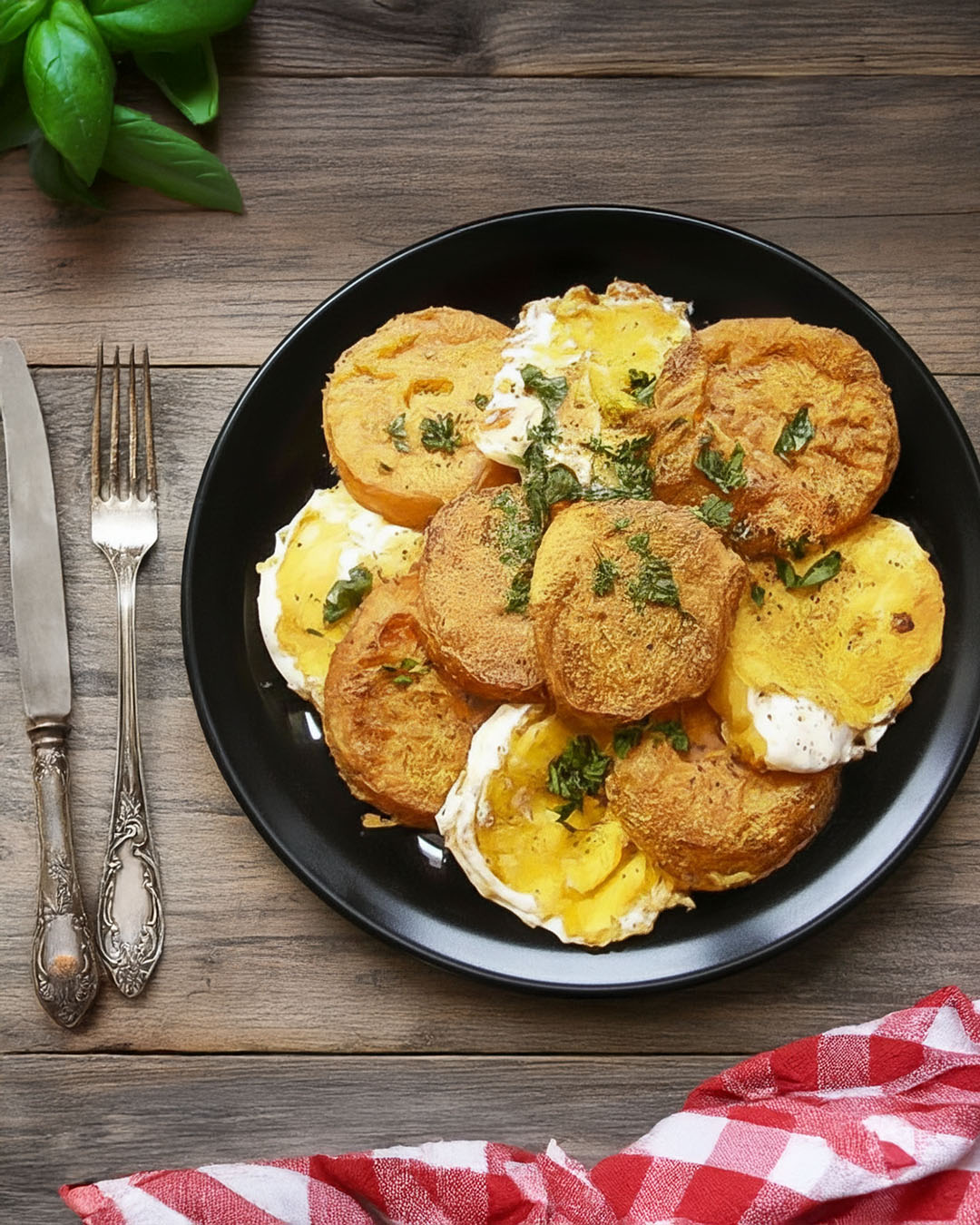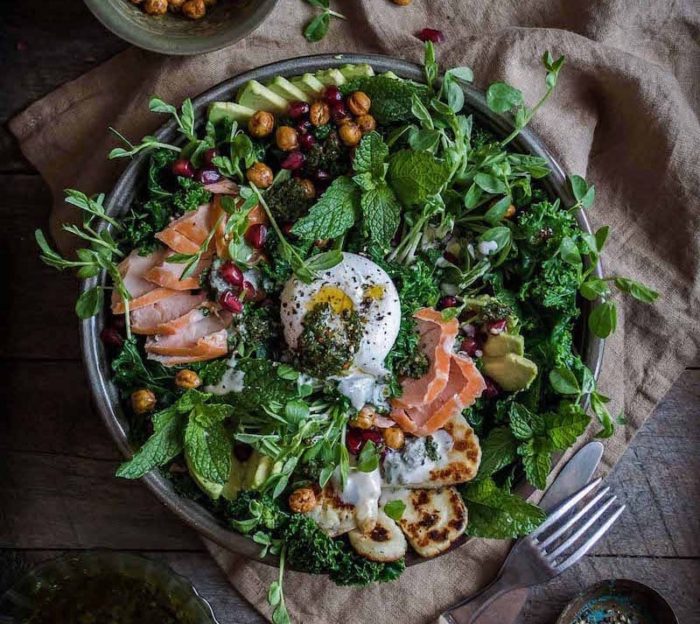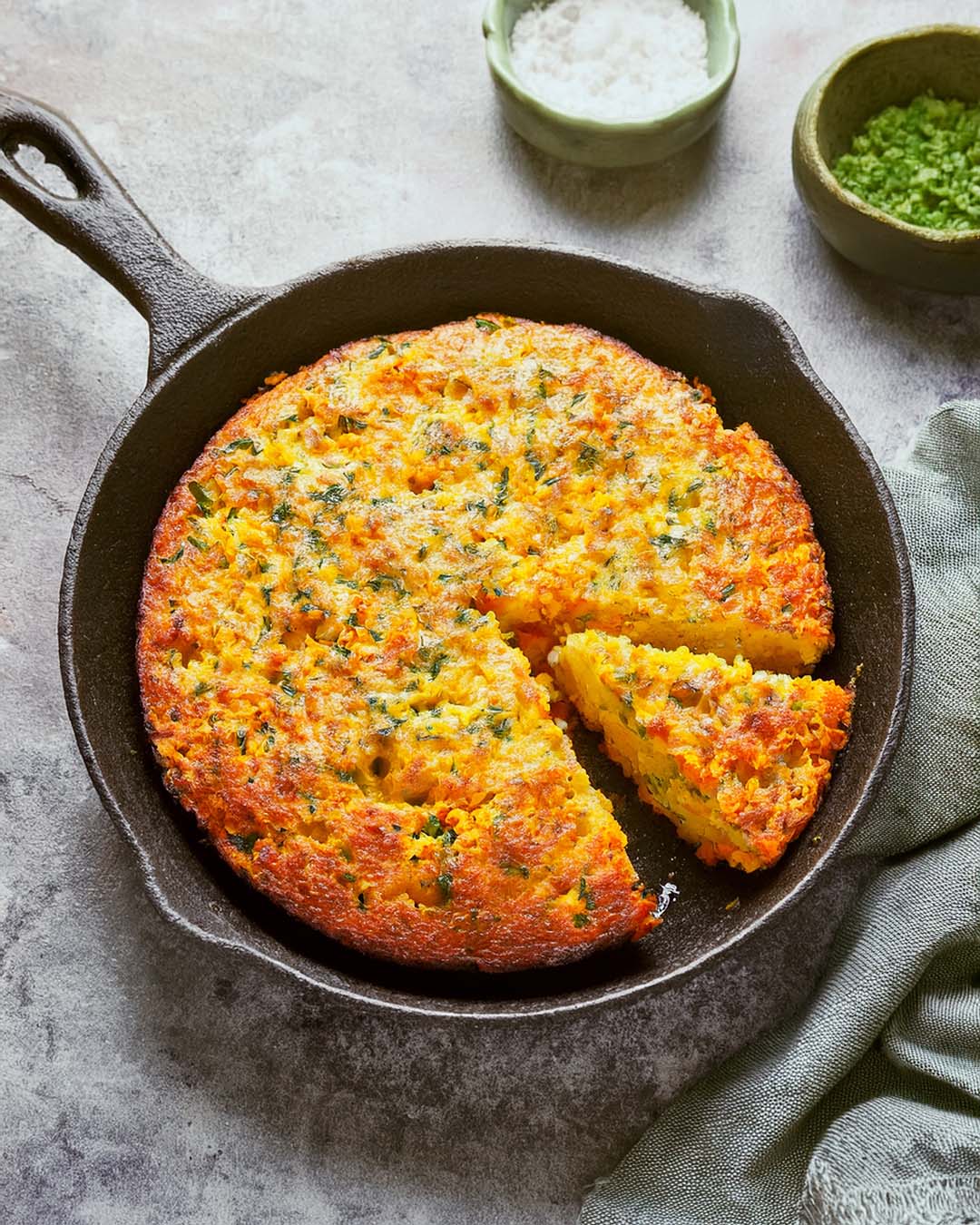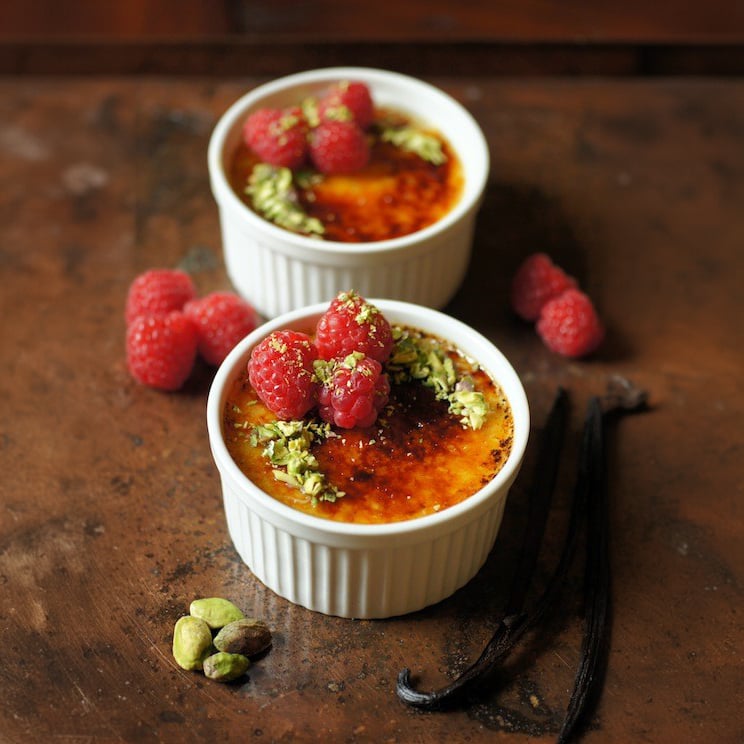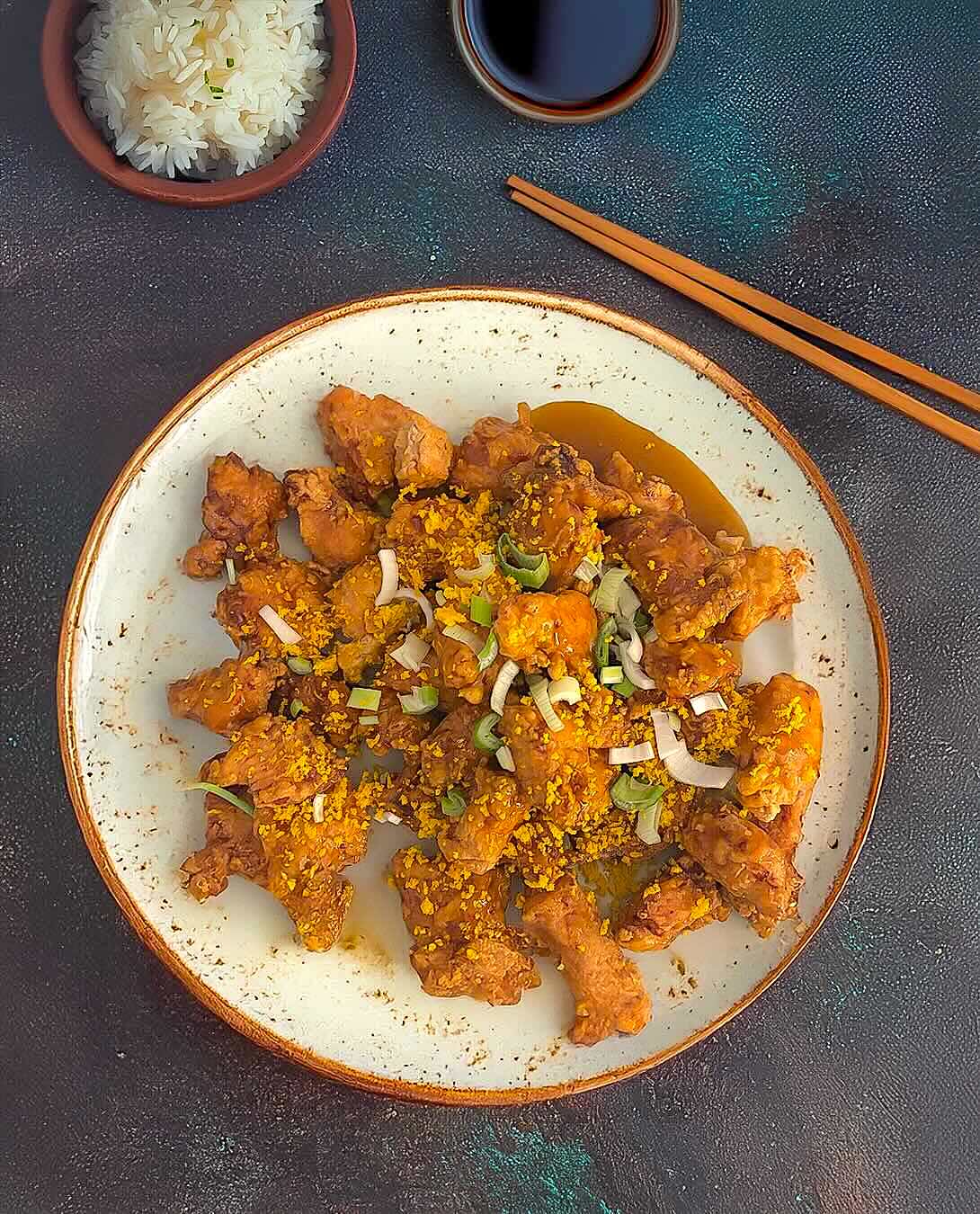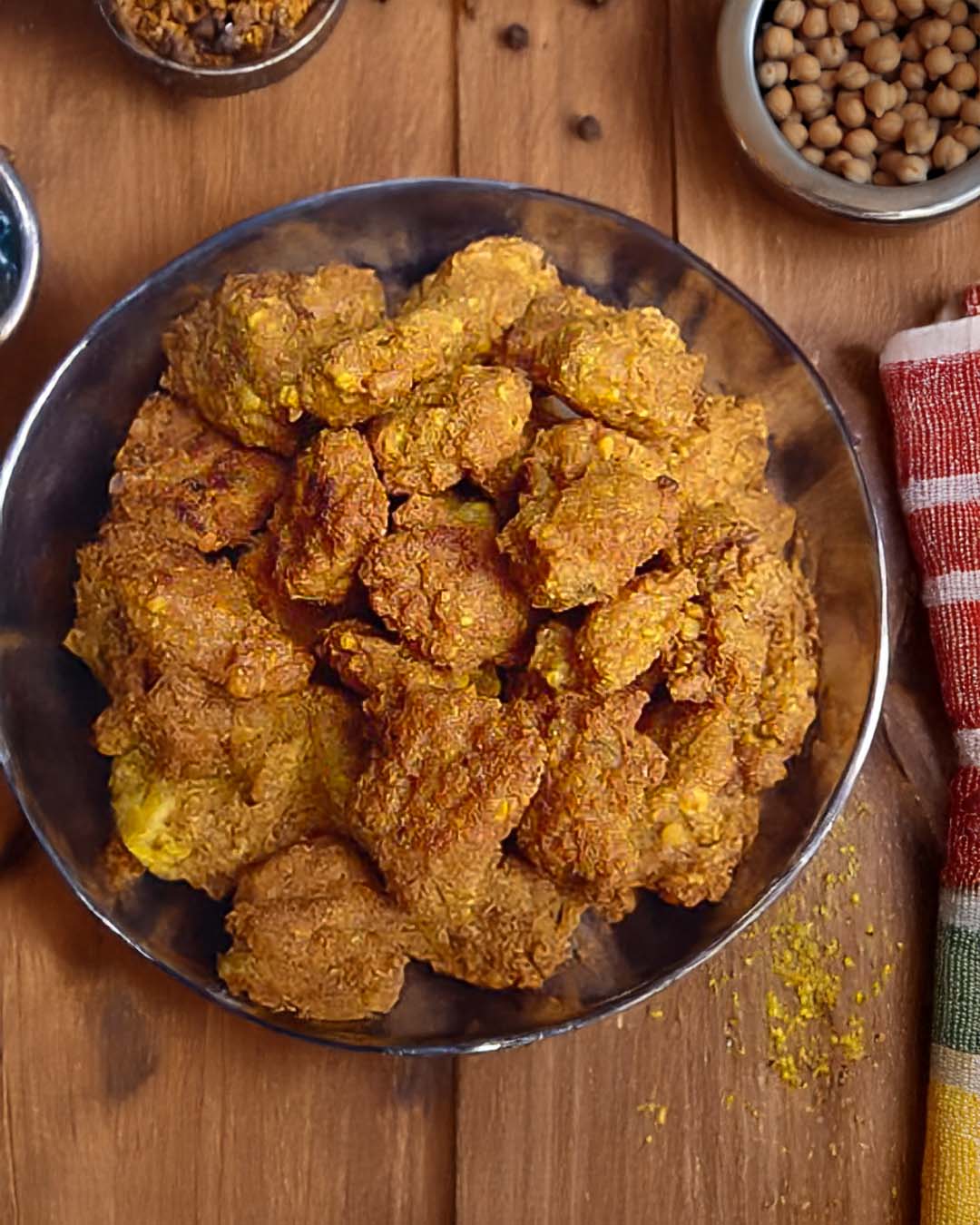A neuroscientist and a gastronomist walk into a bar… Ten years later The Best Chef was created.
The ‘walk into a bar’ is a classic joke formula used to emphasize the meeting of opposites, ending with a comedic punchline. For neuroscientist Joanna Slusarczyk, 34, and gastronomist Cristian Gadau, 44, the punchline packs a heavier punch. It is the real-life story of how opposites attract – and can create something brilliant.
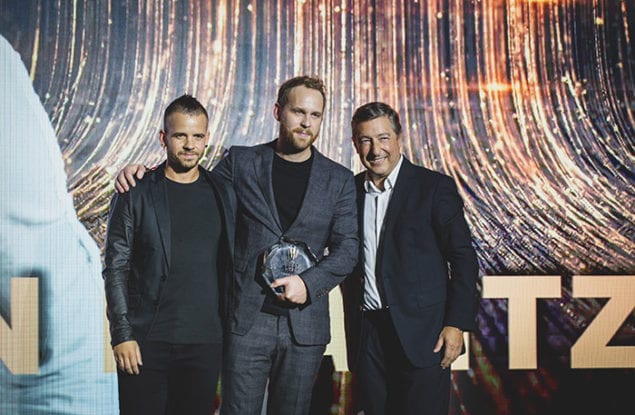
Polish Joanna and Italian Cristian met each other 15 years ago. She was a Ph.D. in neuroscience and a pragmatic thinker. He was well rounded in the world of hospitality and a creative soul. Little would they know that ten years later, they would not only still be close, but also business partners, creating a project that utilizes both of their strengths.
In 2015 they launched The Best Chef: A project dedicated to celebrating the many talented chefs that create the best food around the world, as well as launching a community where knowledge is shared. A space where the old guard can share the core of their craft with the next generation, who in turn can inspire new ways of thinking.
“Basically The Best Chef is a vibrant community of food lovers,” Joanna explains.
“We want to globally unite the best thinkers and leaders in the world of gastronomy and fine dining and showcase their whole process. Not only to their own peers but as examples for the future generations who can learn and build on the ideas of the current world’s best,” Joanna explains and adds that the community is free for anyone who shares a passion for fine dining:
“We want to provide them with a platform that they can use as a point of reference, a knowledge hub. The Best Chef is a platform to seek inspiration, keep up on ideas from all over the world as well as encourage debate and discussion regarding everything in the world of fine dining.”
Cristian was the one who initially thought of the idea. It came from a natural curiosity he always had about the minds of these chefs and how they work. He sought to find the answer and wanted it to be a hub of knowledge accessible for everyone.
“You can almost say it’s a mix of the gastronomy of the past, present, and future. We connect the dots between the established generation and the younger generation of people who want to become chefs themselves. It’s a way of also making this small exclusive community of fine dining accessible for everyone else who is interested, the same way I was,” Cristian explains with excitement.
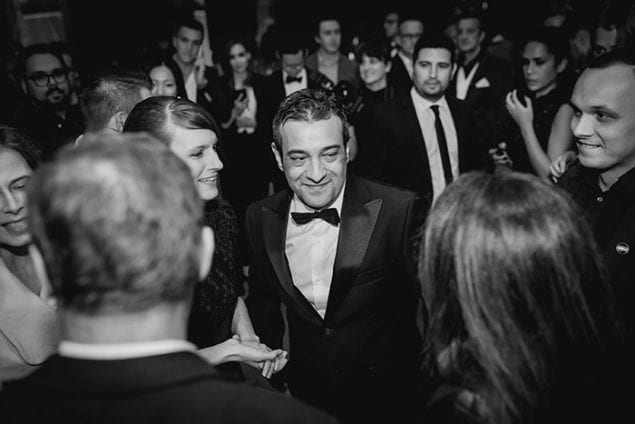
So while food still plays a central role in their community, there is a higher focus on the drive, the passion, and the creativity behind the chefs. These are the traits that allow them to excel at their craft, and Joanna and Cristian thought this side of the story had not yet been told in depth.
The Missing Ingredient
To elevate this even further, in 2017, they expanded their offering by creating the The Best Chef Awards. Joanna and Cristian created this ranking list to create even more focus on the chefs, as they felt current publications were lacking in that.
“I definitely think it’s a territory of gastronomy that was missing. There is a heavier focus on restaurants and on locations and less of a focus on the chefs. And by chef, I mean the person. That was the original idea of The Best Chef Awards – and still is – to put focus on the chefs and make them the main thing of interest. To showcase the chef and showcase their approach to food in general. The Best Chef awards is about showing the best things about the chef,” Joanna explains.
Barcelona, Copenhagen, New York, and Tokyo are all examples of the many metropolitan cities that have been critically acclaimed for boasting a high level of gastronomical excellence. These cities are each year visited by defining tastemakers such as The Michelin Guide and The World’s 50 Best.
But as excellent as these publications are, they do focus heavily on putting the cities and the restaurants in the forefront. It’s even evident in the name: The World’s 50 Best Restaurants, where they subcategorise the restaurants into continents and regions.
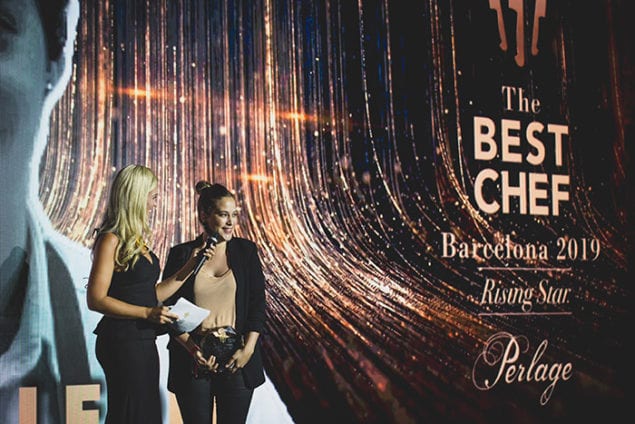
And while The Michelin Guide has been in existence for 120 years, not many people are aware that the stars are awarded to the restaurant, although the head chef will be praised for creating the meal. The meal is the pivotal element to getting those coveted stars, but if the chef leaves, the stars do not transfer with him. Which in its own way makes sense, but proves how the chefs actually are lower on the totem pole.
The Best Chef Awards were created to offer an alternative so the focus is shifted more onto the chef. But taking on such a big task required preparation, so the duo spent the first couple of years doing their legwork before finally presenting their vision to the world.
“We wanted to know more about chefs, fine dining, and the world of gastronomy before launching the Top 100 and live event. We dedicated the two first years to thoroughly prepare before we went live,” Cristian recalls.
The final product was The Best Chef Awards recognising the best of the best, chosen primarily by their peers. The Top 100 is announced every year around the end of September and celebrated with a live event in a new major city chosen every year taking different factors into consideration.
How The Best Chef Awards Are Made
The Best Chef’s website might explain the process to be a bit more complicated than it actually is, but it is pretty straight forward. Let us break it down here.
Two voting rounds
First there is the shortlist of nominees of 200 chefs. These consist of 100 “fresh faces” as well as the top 100 from the previous edition that are automatically nominated again. The list of 200 nominees is shortlisted by a group of over 100 professionals who scour the globe in order to find talent from every corner of the globe.
“This jury of professionals includes food journalists, critics, bloggers, photographers, and other notable people with a broad knowledge of fine dining. The professionals are all anonymous so that no interference in the voting can take place. But they are experts in the industry and their choices for each of the fresh faces come with an explanation as to why they have made the shortlist,” Cristian explains.
Fresh faces can also include chefs that were on the top 100 once, did not rank the following year but deserved to be nominated again as judged by the professionals. The shortlist of the 200 eligible chefs are announced every year at the end of April.
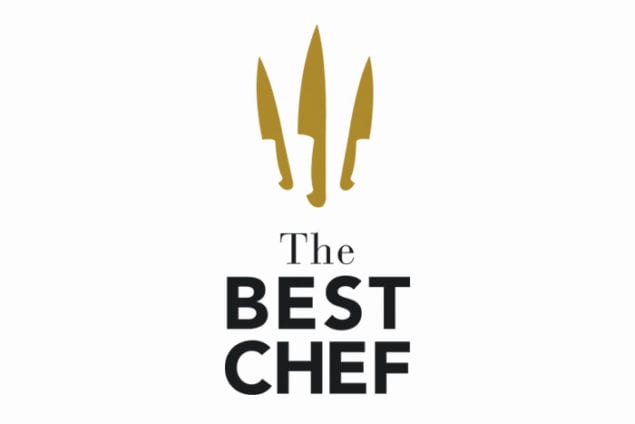
The Final List
The second voting is to rank the final Top 100 from the shortlist of 200. This ranking is created from votes by the 100 professionals as well as the current ranking top 100 chefs and the 100 candidates.
The voting takes place via a secure online survey where each member is sent a unique link and the voting process is very simple. Each person can vote for 10 chefs, choosing from a drop-down list and the point system is 100 – 1000. The voting starts at the beginning of May and there is a one month window to vote. Joanna Slusarczyk explains how they prepare the jury and how the final tally is made.
“The chefs know that they are not allowed to vote for themselves. And once the survey has been completed, there is no way to change a vote. Not even we have access to the results until the voting period has ended, and because of how the survey is set up, the votes are counted by the system and there is no way to tamper or falsify them,” Joanna explains and adds that the chefs in sheer numbers of voters have a bit more of a say in the final results.
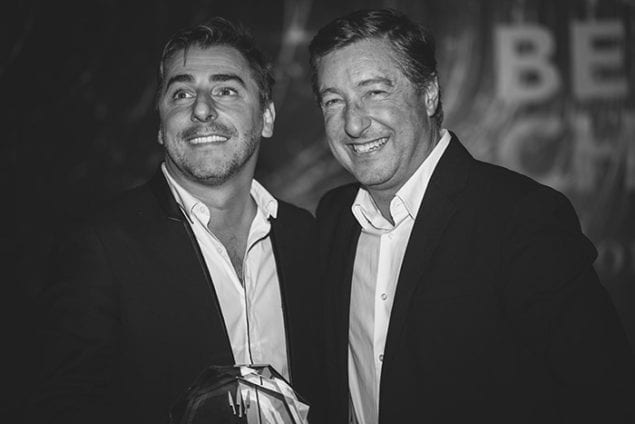
“The Top 100 is a way of showcasing chefs – where they can pay respects to their peers and therefore the group of professionals has a lower voting power. Their votes count 30 percent where the chefs’ votes count 70% percent. This way the chefs influence the list more.”
But since the world’s top chefs spend most of their awake time creating magic in their respective kitchens while trying to maintain a family life, traveling doesn’t take up many days of their years. So since the chefs have the most say in the list, would their votes not heavily rely too much on press coverage, hearsay, and social media following as well as interpersonal relationships between the chefs? Is this in any way diminishing the influence of the list?
Joanna knows that The Best Chef Awards still has its weaknesses, but explains that it’s possible because it goes beyond just the food. Of course, the taste of the food is a very important factor, but it is also what the person represents that can unlock a high placement on the Top 100.
“We know that no one from the jury would be able to visit all 200 chefs. But let us use the current list as an example, where René Redzepi [of Danish Noma fame] was voted number one this year for the first time. We believe he chosen because he showed how big of a visionary he is and his creativity. He returned from his hiatus with a heroic burger enterprise during COVID-19 and surprised us all, as everyone assumed he would return to fine dining. What he did was extraordinary and it was not just about the food, but his approach and philosophy,” Cristian explains and adds:
“The most important thing is that we wanted people from all over the world, so we have people from each region and each continent represented. And then of course there are food critics, foodies, and journalists in our jury that do travel. Maybe not 200 trips each, but we do get a good representation.”
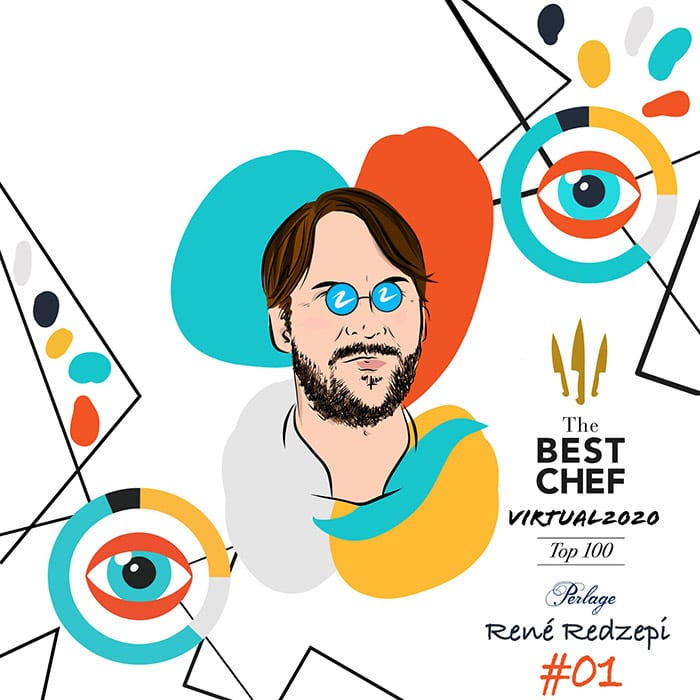
![]()
So the importance of the list is not just measured in what food they serve on the plates, but what they serve-up as inspiration to the industry. Something that does not necessarily require a physical presence in order to admire.
Lack of Nuance
While the total voting pool has the professional credentials to contribute to the list, the demographic representation echoes what is seen in most other industries; dominated by white males.
Going through The Best Chef Awards Top 100 it is apparent that it is heavily male-dominated, white, and very focused on Europe. Is this an accurate representation that the best chefs in the world are mostly Caucasian men based in Europe?
“Yes, there is an international tendency beyond our control to have great chefs that are based in Europe. It’s a tricky subject because we know that lack of diversity is not just limited to The Best Chef Awards, but a problem in every list and ranking in different industries. We know the tendency is like this everywhere and we want to be different and open to everyone. We put extra focus on finding these talents that are excelling in countries and regions outside of Europe,” Joanna explains, while Cristian says they do have their eyes on typically overlooked places.
“We also try our best to be as inclusive in the list of 100 candidates as possible and diligently follow chefs from not “usual suspect” places, such as several countries in Africa.”
He adds that fine dining is a luxury that is mostly found in bigger metropolises, but they are actively trying to look at the dining scene in rural parts of South America, Asia, and Africa as well.
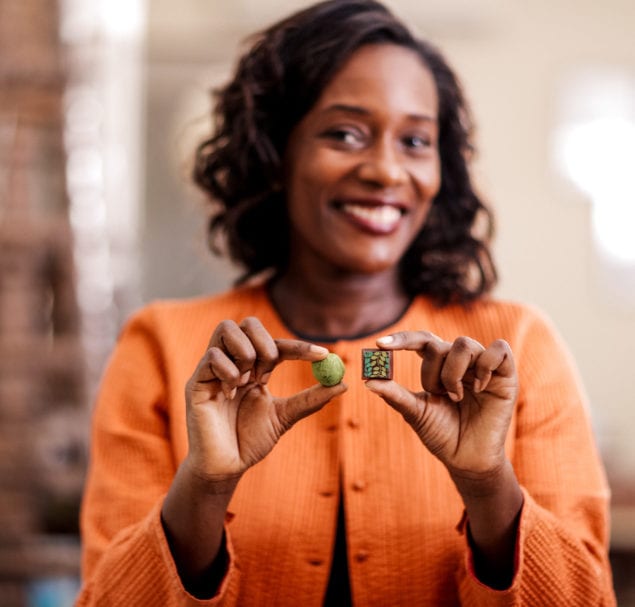
But beyond the awards being heavily euro-centric, The Best Chef Awards look more at the skill and persona of a chef, rather than their gender and race, which does add some diversity to the list.
“Whether they are male or female or black, white or yellow is not of importance to us. This year the 100 candidates had a lot of women, there was plenty to choose from so it was not about white males voting for white males,” Joanna explains and says that they deliberately made a choice to look beyond gender a few years ago.
“We used to have gender divided awards, but we chose to eliminate the best female chef award after 2018. We did this because we deemed it to be counterproductive in the narrative of equality. We can’t and won’t distinguish between genders when it comes to being the best chefs. Talent is talent so we keep it gender-neutral with equal opportunity.”
Giving Back To The Community
Even though The Best Chef Awards only have four years behind them, they have already gained notoriety. This is because both the list and the chefs symbiotically work together to make the other more influential.
“It benefits everyone involved really. Using René Redzepi as an example again, being the gastronomy icon he is, he obviously does not need us to further his career. But we show our community and the next generation what it means and what it takes to be the best chef in the eyes of your peers. What qualities they possess and how they approach this industry, which creates a ground for gaining knowledge. On the other hand, we do have a global community and expose the chefs to a broader audience which allows them to share their philosophies with them. It’s a symbiotic relationship really. It’s a showcase of the industry showing the best of the best,” Cristian says.
But while The Best Chef Awards is the juggernaut under the umbrella that is The Best Chef, their activities are not just limited to it. They also created Area Talks. A form of gastronomic TED Talks conference with discussion panels to promote the exchange of opinions, solutions, and ideas.
“Panelists are chefs as well as journalists, foodies, marketers and other industry people from all over the world. With Area Talks we want to show gastronomy from several different points of view to a broader audience. We don’t want the discussion to necessarily be politically correct, but we want them to spark further discussion and inspire others”.
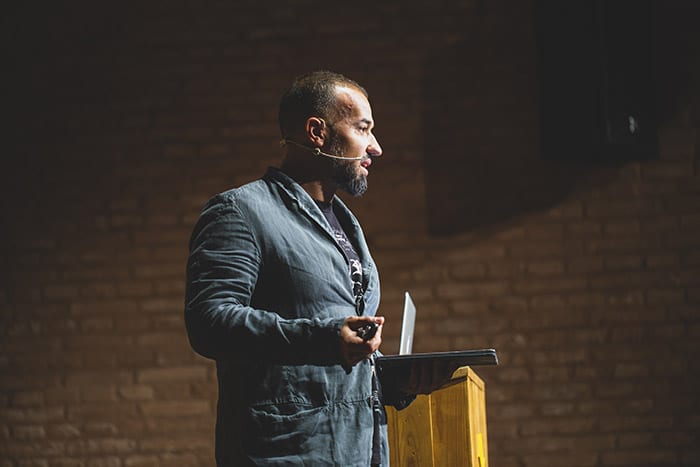
Area Talks was born last year in Barcelona, when the city hosted the awards. In 2018 it was Milan, while the inaugural event was hosted in Warsaw. For the 2020 edition, it was a three-day virtual event, for obvious reasons.
The host city is picked by Joanna and Cristian, with input from the community. Sometimes the choice comes down to logistics, like their first year in Warsaw, Poland, where they themselves are located in Kraków, Poland. In 2018 they chose Milan because of the rich food culture. The choice for Barcelona was a consequence of the number of chefs in the Top 100 the previous two years.
“Barcelona was picked because Joan Roca of El Celler de Can Roca won the two previous editions so it was a clear choice. Plus Spain also has a rich food culture just like Italy,” Cristian explains. He also says that the demographics of the turnout in Barcelona helped them choose the next host city.
“There was a huge turnout from The Netherlands and we think they have a lot of talented chefs and since they showed up in strong numbers we decided to pay back the love and chose Rotterdam as the next host city, which should have been in 2020 but will hopefully be a reality in 2021,” says Joanna and adds that in the future they would like to travel further overseas as well.
The hosting cities gain more visibility: showing off their gastronomy and traditions as well as having large numbers of international critics and bloggers trying the local restaurants and interacting with the local community of foodies.
Gastronomy vs Science
But The Best Chef Awards and Area Talks only make up two parts of the trifecta that is The Best Chef. The third side of the triangle is Food Meets Science. An interdisciplinary symposium that combines the correlation between science and cooking, appealing to a different segment and allowing Joanna to utilize her background in neuroscience.
“Science is an extremely important factor in food, and cooking can’t exist without science. Cooking is chemistry, biology, and physics, and science is seen in gastronomy in gastrophysics as well as psychology. Eating is such a complex process from both a physical and psychological point of view,” Joanna explains.
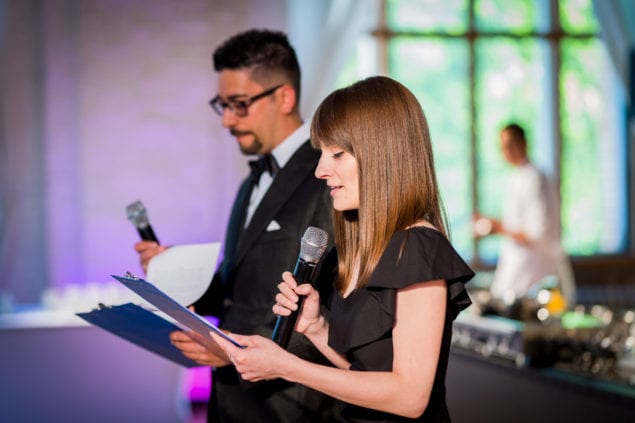
The interconnection between the two was what birthed Food Meets Science. They wanted to show this combination through a mixture of chefs and scientists touching on the many different ways the two factors can interact.
“Last year the main topic was Gastrophysic – with superstars such as Joan Roca, Pia León, and Charles Spence as keynote speakers. This year we spoke about sustainability and new technologies,” Joanna explains and admits that the original idea was to focus on just food and neuroscience, which is her expertise.
“But I discovered that in gastronomy there are so many different aspects of science that we decided we need to cover as many themes as possible and get many points of view across. We did this because we wanted to educate because we believe that in order to truly excel at your craft, you need to know this part of gastronomy as well. With Food Meets Science you have the opportunity to hear from both different scientists and chefs that have different experiences and opinions on the intersection of the two.”
Joanna explains, the brain discovers and feels many things, during the experience of eating, which is a very complex process.
“We don’t just call it ‘food’ or ‘eating’. It is a wholesome experience and there are many things that can have an impact on it, so it truly is a very interesting study”.
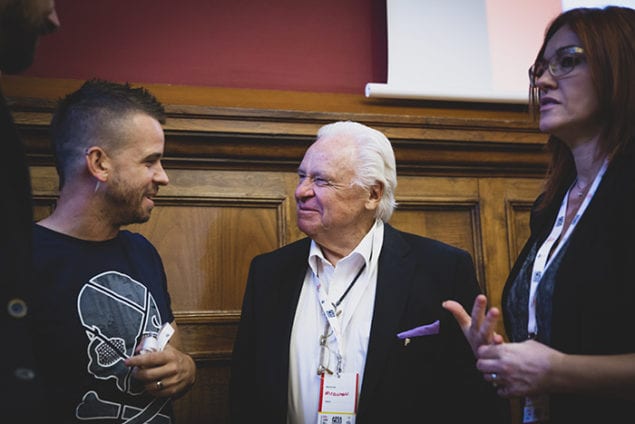
Virtual Edition 2020
While the pandemic indeed threw a wrench in the project this year, it only brought The Best Chef to a halt and not a full stop. Originally planned to be held in Rotterdam, The Best Chef Awards including Area Talks and Food Meets Science went digital this year with a virtual edition where you could participate while social distancing in the comfort of your own home. Albeit a bit more unconventional than past editions, it wasn’t uncharted territory for the two.
“The Best Chef was born from a virtual point of view and we were strictly based online for the two first years, so it was nothing new. But it did of course feel a bit more strange after having live events the last three years. The lack of people and atmosphere hindered the ‘meeting of minds and the state of the world didn’t exactly add any joy,” Cristian explains.
The experience did however give them some powerful tools that they will be able to use in the future. If all goes accordingly, The Best Chef will have their live event in Rotterdam in 2021, which will also see the company take a slightly different direction. From next year The Best Chef will be split into two parts. They will still have live events in a major city, but in the future, there will also be a heavier focus on a virtual edition.
“We, as well as the rest of the world, have to adapt to the fact that things will be different in the future,” Cristian says and elaborates:
“Next year we are planning to do a hybrid event, as we know that it might still be difficult to travel across international borders. Not only from an aviation point of view but also economically. A virtual edition will make it more accessible and will be the new normal. We have long been thinking about it and we are sure that if you approach it creatively there will be a lot of opportunities,” he adds and highlights that this doesn’t mean that less energy will be put into the actual physical event.
While we as a global society wait this one out, the show must go on as they say. And Joanna and Cristian are still keeping busy. They proceed to scout for talent all over the world and through their website, The Best Chef Awards and via their social media channels of millions, they continue to bring the chefs to the forefront of the conversation.
Joanna and Cristian are also working on regional editions of both Food Meets Science and Area Talks, while the interdisciplinary conversation and exchange of thoughts and opinions continue through their online community.
The Best Chef Awards – Food Meets Science – Area Talks – www.thebestchefawards.com
